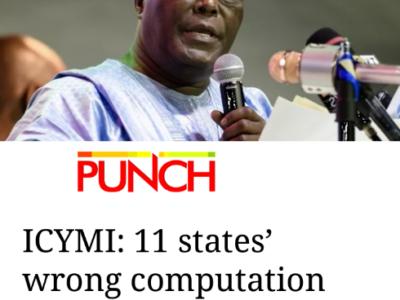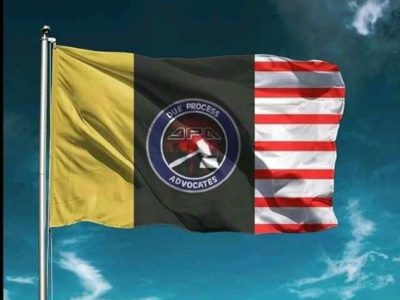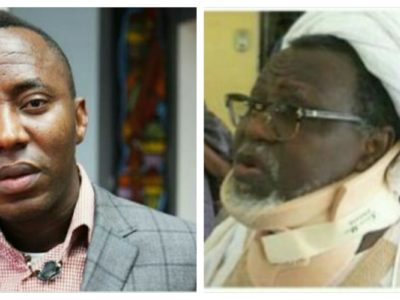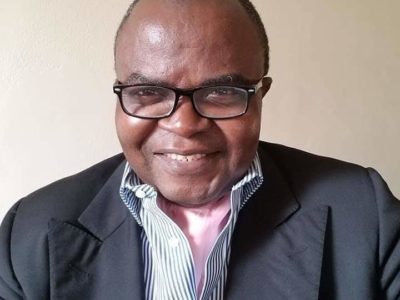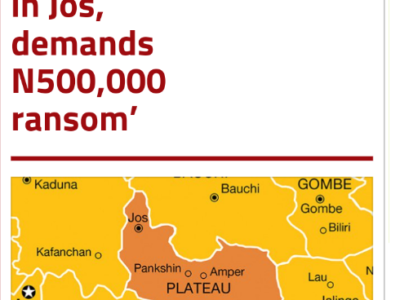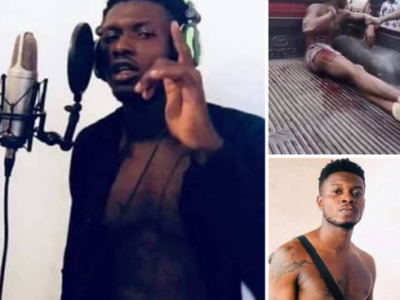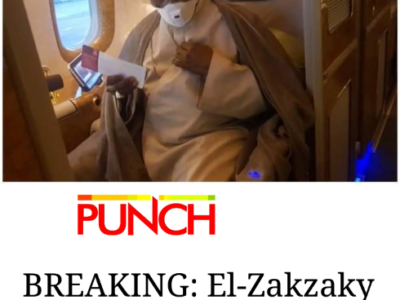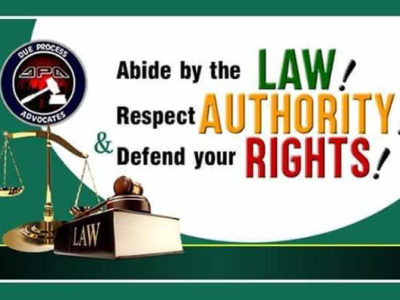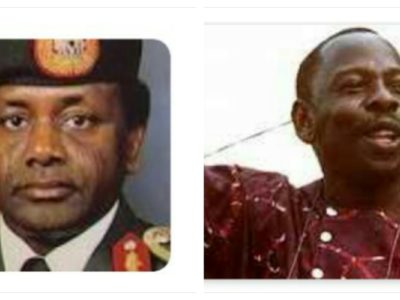Atiku must have been disappointed by how he almost lost
In the famous court trial of the year, Alhaji Atiku Abubakar summed up his case and claimed the slowest margin of victory anyone could have expected. The press is awash with the story, with Punch Newspapers on the lead.
As reported by Punch:
"The petitioners [Atiku Abubakar and his party] stated through their lawyer, Dr. Livy Uzoukwu (SAN), that a correct computation of the results would give them a margin of lead of 222,332 votes over President Muhammadu Buhari and his All Progressives Congress.
"They stated this in their response to Buhari’s final address, contending that the correct computation showed that they scored 9,426,082 votes against Buhari’s 9,203,750.
"They claimed that reports tendered by a statistician, who was called as one of their witnesses pointing out faults in the result declared by the Independent National Electoral Commission, was not challenged by the respondents to their petition."
Almost every supporter of Atiku, who believed he won the presidential election of 2019, must have assumed it was by a very wide margin. Hence the interest in going to court. But with the figures that Atiku now claims, it is clear that Atiku and his supporters exaggerated their popularity and understated that of Buhari.
Victory is victory, regardless of the margin. That's what Atiku will be saying. But the margin is so close that the best he can expect, if the court gives him what he wants, is the nullification of the election and re-contest. If a re-election is held between the two, Atiku's chances may be worse. The only hope for him is for him to win also on the certificate issue.
It is not a welcome home for the Sheikh
The El-Zakzaky case has become a most complicated case for Nigeria. The Nigerian press is awash with stories of the dramatic repatriation of the Sheikh and his wife from India.
The Sheikh accuses Nigerian, US and Indian governments of frustrating his court approved treatment in India. While the US dismissed the allegation of any American involvement as baseless, Nigerian government has, through its Ministry of Foreign Affairs, provided its own account of events, accusing El-Zakzaky of various acts of bad faith, including some undisclosed plan to seek asylum.
Apparently, the Sheikh saw his medical trip to India as an opportunity to gain further International sympathy for his cause. But when hundreds of Indians picketed the Nigerian High Commission in India, demanding release of El-Zakzaky, it became a nightmare for both Nigeria and India. Hence, no surprise in his repatriation.
The Sheikh arrived Nigeria by noon on Friday, August 16, 2018 and was immediately seized by men of the Department of State Services (DSS) and driven away to a place where they would detain him.
The development has shocked every objective observer. It was a sigh of relief when the court granted leave for him to receive treatment overseas. That was seen as the dawn of a solution to the long standing impasse between the Nigerian Shiite Muslims and the government of Nigeria which has cost each side so much. The dramatic return of the Sheikh thwarts that hope.
This is an opportunity for Nigerian government to show maturity and discipline which has eluded it so far in the handling of this case. The detention of El-Zakzaky has cost Nigeria a lot in security and International relations. Many are seriously wondering the benefit in his continued detention.
To deny him bail while approving foreign medical trip was a disaster. It was because he was not on bail that necessitated the protest against Nigeria in India. Also, the fear of him getting asylum seems to be exaggerated. What is fueling the protests by his followers is his incarceration, not his freedom outside Nigeria. It would have been better to release him on bail, but closely monitor his activities within Nigeria.
It is not a welcome home for the Sheik.
DPA teaches members how to create their employment contract even when the employer failed to give them one
In its usual effort to keep its members informed, DPA offers a guide on how to overcome one major problem workers face in Nigeria. The write up below will be exciting to every person that works for someone else.
HOW TO CREATE YOUR OWN EMPLOYMENT CONTRACT
Many employers will not give you a written employment contract. They just ask you to start work and you keep receiving your salary. But you know that without written terms of employment, your job is not secure and your employer can fire you and deny you your last months salary and any benefits he promised you when you were hired. Unfortunately, it is Nigerian lawyers that tell the expatriates and foreigners not to bother giving employment contracts to Nigerian employees.
One of the marks of being in an underdeveloped country is that no law requires your employer to give you a written employment contract. In other countries that are developing faster, employers are required to have a written employment contract with each employee. The purpose of such written employment contract is to protect the rights of the employee against a sudden change of the terms promised her at the beginning of the employment.
When your employer refuses to give you a written employment contract, that means it is not clear when and why you can be fired or what will happen when you are fired. That means you are totally at the mercy of your employer. If he wants sex and you refuse, you can be fired without pay. If he suspects that his wife likes you, you will be fired. If he likes your daughter and you don't encourage her to be nice to him, you will be fired. And if fired, there is nothing you can do because there is nowhere it was written down that you were even his employee. He can say that all the money he has been paying you was just to help you out on charity. He can claim that you were a volunteer worker in his company, etc. You can't do anything because you have no written employment contract.
The above is a big concern to our members. While we cannot change the situation overnight, we can provide the following useful guide to protect your interest.
(1) The first thing to do is to make sure you keep a record of the job advertisement that you responded to and got the job. Nobody advertising for workers will say he will not pay you and treat you well. Rather, they will describe themselves as successful business that offer competitive employment opportunities. They will say they are looking for well-qualified workers. Keep a copy of this. It will help you if and when your employer tries to say you were just a volunteer that he wanted to help or that you were just an apprentice he offered to train.
(2) During the time you were being interviewed for the job, you would have received several emails and text messages talking about the job. Save all such communications.
(3) During the time you were working for the employer, he would have sent you to third parties or he would have described you in memos and letters to customers and suppliers. Keep copies of such memos for when your employer tries to deny you.
(4) From time to time, find an opportunity to send an email or text message to your immediate manager describing your work and any particular target you met. Keep such messages and his replies in case.
(5) If your employer has a staff manual when you were employed, make sure you keep a copy at home. The courts have held that those staff manuals are contractual in nature and that they contain part of the things the employer and employee agreed as part of the terms of employment.
(6) Keep in safe place every letter of commendation or promotion you received while on the job.
(7) Also keep copies of every query or disciplinary correspondence you received while on the job. When things go bad, the employer will magnify your sins. But having a copy of what it was, when committed will save you from subsequent harmful exaggerations thereof.
(8) If you receive any unusual payments from your employer, find a nice harmless way to obtain a written explanation what the payment was about. The worst thing to happen to you is where your employer suddenly treats your salaries as commission.
Keep all these things in a safe place outside your place of work. Remember that the day you are fired, they may not allow you to return to your desk. Most likely, you will be escorted out to the gate right from your last meeting with the human resources manager. Anything you kept in your desk drawers then belongs to your employer.
If you have 1 to 8 listed above, they will help the court put together the terms of your employment, even if your employer did not give you an employment contract.
Revolution-Now: the fate of Sowore two weeks after
Remember the analysis and predictions of DPA Rambo concerning Sowore and how it all came to pass as predicted.
Two weeks after, Rambo can make further predictions and suggestions as follows:
It is important to note that as at this time, nobody is talking about revolution or how to overthrow the government and cause a fundamental change any more. The only thing being discussed by decreasing number of people is how to get Sowore out of DSS detention cell or how to have him transfered to prison by arraigning him in court.
Whenever the discussion of a revolution moves from substance of fundamental change to how to spare the neck of the leader of the revolution, you need not be told that the revolution has failed. In the case of Sowore's revolution, it never existed. When finally charged to court, Sowore's best defense will be to deny that there was ever any revolution. Apart from his denial of its existence, everybody knows that the revolution failed immediately it crossed Sowore's mind.
Today makes it one week since his arrest and detention by DSS was validated by a court order. Sowore has 38 days remaining out of the initial 45 days of his detention period. The confused voices calling for his unconditional release have quietened down, naturally. The longer he stays in detention, the fewer and fewer the voices calling for his release. That's how it works. He never had the capacity for a prolonged fight.
Before, I go further, let me make it clear to you that I do not support the arrest and detention of Sowore. Nigeria should stick strictly to the constitutional term of 24 hours for pre-indictment detentions. The only difference between the typical supporter of Sowore and me is that while I look at the Nigerian law before commenting, his supporters either forget about the law or they are in denial.
Many people, including lawyers, will speak about fundamental rights without remembering the judicial order exception. You should always read the fundamental rights sections of the Constitution with that exception. So, before you speak categorically about any provision of fundamental rights sections, start by saying silently the following words, "Except there is a judicial order to the contrary" before you start stating the right. For instance, when it comes to the freedom of movement, I will read it as follows "Unless a court of law has ordered otherwise", a person shall be entitled to freedom of movement.
The idea is simple. If the court has ordered you to be detained, you no longer have the freedom of movement. If the court has ordered that a person be detained, it is totally strange to look at the executive arm of government and demand an unconditional release of the person. There is a difference between a detention order signed by the Police or DSS and the one signed by the courts. A detention order signed by the DSS does not affect the definition of your rights. But that signed by court will override the right you are claiming. It shouldn't be hard for you to know that the court interprets the Constitution and can determine when to suspect your rights. So, being detained based on a court order, the only way to release Sowore is to return to court and have the order varied or modified.
As for the recent protest in Abuja by a handful of Sowore's personal friends, it is important to know how DSS would interpret such protest. DSS is an agency with excessive powers and scanty legislative oversight and total lack of executive supervision. Also, for your information, the DSS has been able to intimidate the judges. Who is the judge that will deny a DSS request to detain a person accused of treason and terrorism? What many Nigerians do not realize is that Nigerian law enforcement agencies are more repressive now than during the Military rule, and our judges are more timid now than then.
If you noticed, the judge that granted the order to detain Sowore said he did not have the power to refuse to grant it. Well, that's not entirely true. The judge had a lot of power which he chose to exercise in favor of DSS. For instance, yes, the judge seemed bound to grant the order. However, it was totally up to him the length of time of detention to grant them. Just as the judge was able to reduce the period of detention from 90 days requested by DSS to 45 days, he could have reduced it to 7 days or less. But he didn't.
DSS will not yield to protest easily. In their thinking, to do so will be to appear soft and to encourage more protests for others either currently in detention or to be detained in the future. So, the protest of two days ago naturally will have the opposite effect. The fact that they appeared to have yielded to protest in El-Zakzaky means they will feel a need to be tough again. Besides, while El-Zakzaky had people willing to die for him, Sowore has only some of his clueless fellow travellers. If protests did not get Nnamdi Kanu released, the kind of protest led by Adeyanju two days ago is not going to do it.
This is what to expect:. DSS will arraign Sowore much later. His bail will be a contested issue. So, he will remain in custody for sometime. DSS will come up with all manner of stories to build up the case. Look at Nnamdi Kanu's case. They know how to build up something big out of little. In Sowore's case, they will find a lot if they focus on his finances.
So, the protest for Sowore is nice. It will make him feel good. But it merely annoys the DSS because it is not powerful enough to shake them up. As hinted by one security expert who discussed this case with us, DSS probably already infiltrated the group protesting for Sowore and can make an aggressive move on them. If that happens, they will all scatter.
How Emeka Ugwuonye’s experience redefined the meaning of trolling.
Trolls on social media are people who deliberately provoke others online by saying inflammatory and offensive things. They promote hate speech, attack an opponent’s character and say things to appeal to people’s feelings rather than their intellect.
Many did not realize how trolls work until they find themselves as their target. Trolls act in concert when there is a concerted effort, which is defined as:
"contrived or arranged by agreement; planned or devised together: a concerted effort. done or performed together or in cooperation: a concerted attack".
They also act on conscious parallelism basis, when there is a coordinated or identical action or behavior that occur among people without any specific agreement among them. It is a conscious behavior with specific intent because each actor expects the support of others with joint intent to achieve the same result.
Those who harass or bully on social media, otherwise called trolls, either act in concert or on the conscious parallelism basis. Emeka Ugwuonye is an incredible case study.
When he set up the group, DPA, he attracted many followers who saw DPA as a mecca for social media advocacy and activism. People joined in their thousands. At the same time DPA's success provoked envy and hatred. It was easy to join, but difficult to stay. Determined, for instance, not to allow the DPA platform to be used to spread the wrong message, DPA has a practice of removing people who could not keep to its high standards of civility and its values. DPA removed over 20,000 members.
If the admission process were strict enough most of those removed would not have been admitted into DPA forum. The people removed from DPA felt the bitter pain of exclusion, and these were people already experienced in social media activism while in DPA.
It was easy for trolls to be recruited from the list of those removed. Though relatively small compared with DPA members, those removed became trolls against Emeka Ugwuonye and DPA. They spread so many false rumors targeting those who lack analytic minds to question what they read.
Today, if you want to generate traffic to your post, find a way to mention Emeka Ugwuonye on your post. Two days ago, one lady started a post on Emeka Ugwuonye. We didn't know her mind, but mentioning Emeka Ugwuonye's name has been her best way of getting most 200 comments to her post. In this case, this woman is not really against Ugwuonye. In fact, she was trying to be balanced in her story. So, she started off by saying: "Apart from the obvious accusations that Emeka Ugwuonye is greedy and a womanizer, he is not a bad person". She went on to say that Emeka Ugwuonye "was banned from practicing law in the United States".
She was contacted inbox by one of us. We asked her what was obvious about Emeka Ugwuonye being greedy and a womanizer. She had no answer. We asked her to name two women that she knew to have been dated by Emeka Ugwuonye. (We assumed that to be a womanizer, a man must have been associated with at least two women). Can you believe that this lady could not even mention any single woman that had been romantically associated with Emeka Ugwuonye? Next she was asked to identify who banned Emeka Ugwuonye from practicing law anywhere in the world. She couldn't. Knowing that she might be referring to the false letter from the clerk of the Nigerian Supreme Court, which has no legal effect. When we reminded her of that she had no response. Also, she cannot point to any single act of greed by Emeka Ugwuonye, who has sacrificed all he had for others.
This is the effect of internet or social media trolling. That is how it works. Emeka Ugwuonye has been the worst victim, apart from the Presidents of some countries. Trolls mention his name and they increase traffic to their posts. In the case of the lady referred to above, her post attracted comments from many trolls, people who never met or interacted with Emeka Ugwuonye but who would tell stories of what they said or did with Emeka.
We all need to learn from the Emeka Ugwuonye's experience when it comes to trolling.
A nation in extreme crisis: unusual pattern of criminality.
It has just been reported of the case of a teenager who kidnapped himself and demanded five hundred thousand naira in ransom for his release. And all over the country of Nigeria, kidnapping has been upgraded to a capital offense with death penalty.
This is not just a simple case of a bad child caught in a juvenile delinquency. It is a reflection of a criminal orientation. It shows that kidnapping remains the easiest, but one of the most dangerous crimes. It has replaced other crimes as the crime of choice for those with little regard for human life and who are prepared to cause maximum chaos in the lives of others.
Can Nigeria fight the crime of kidnapping with conventional methods? Apparently No! Increasing punishment to the death penalty, without affecting improved means of detection and prosecution is a self-defeating approach. You must first detect the crimes, catch the criminal and successfully prosecute him before the issue of the gravity of punishment comes in.
In fighting kidnapping, emphasis should go to education, community sensitization, changes in cash handling policy and money transfer rules. If ransom can longer be paid because nobody can withdraw certain amount of cash, the effect on kidnapping will far outweigh the current measures
Who will cry for the police?
A Facebook user, Angela Chukwuoma Nnaluo, reported a chilling case of police brutality and cold-blooded extra-judicial execution.
An innocent young artist, Chinedu Obi, was reported to have been cruelly murdered by the police in Ogun State. Nobody is crying for this young man. But the police want everybody to cry for them when they suffer the same fate in the hands of a group with superior firepower.
According to Nnaluo:
The story of Chinedu who was arrested, shot and bleed to death, for having tatoo on his body.
"Chinedu Obi, a graduate of University of Port Harcourt and a musician with the name Zinquest.
He came to visit his friend and he was accosted by the Police at Sango Ota because of the tattoos in his body, if anyone knows how the thieves, bandits, rogues and hardened criminals we call Nigeria Police especially at that Sango Police, Station Ota, harrass and rob people in the name of looking for Yahoo boys, you'll understand the frustration Chinedu would have faced and he protested but he was shot.
Chinedu then lost it and got enraged, obviously he had phycological issues and probably drunk too, he was alleged to have destroyed windscreen of some cars around with an axe he was also saying he'll fight back which he shouldn't have done but in all these he wasn't supposed to be left to bleed to death.
He even requested to speak to his father but some satanic and demonic Nigerians including the police were cursing, ridiculing and mocking him in Yoruba language.
Few weeks ago, a Nigerian broke the windscreen of cars at the Nigeria High Commision in London. He was arrested and charged to court. Obi Chinedu allegedly did the same at Sango Ota, Ogun state. He was shot and left to bleed to death.
This is the difference between living in a nation with human beings who think rationally and living in an insane nation like zoo and jungle shithole Nigeria full of mad animals, thieves, rogues, hardened criminals and fantastically corrupt nitwits. What a shame!."
His crime was that he had tattoos.
His crime was that he had an iPhone.
His crime was that he wore a gold chain.
His crime was that he broke car windscreen after he was illegally arrested and daredevil Nig. Police shot him and watched him bleed to death.
NOTE: The same police force that could do this cannot hope for the sympathy of the people when their officers get killed.
The pictures below show Chinedu Obi and the tattoos that was his only crime.
El-Zakzaky, what happened?
Less than four days of arriving in India with his wife for their heavily litigated leave for medical treatment, Sheikh El-Zakzaky and his wife are on their flight back to Nigeria. The treatment hardly took off before it was canceled.
The question on every lip is: what happened? What is the effect of this on the health of the Sheikh which was said to be seriously fragile?
The development is trailed by allegations and counter allegations. The representatives of the Islamic Movement of Nigeria (IMN) accuse Nigerian Government of frustrating the Sheikh's treatment in India by making life unbearable through extremely restrictive conditions which the Indian authorities agreed to enforce. In counter, the Nigerian Government accuses the Sheikh of sabotaging his own treatment by making impossible demands such as wanting to be accommodated in five-star hotel with unrestricted access to visitors.
This difficulty is not totally unexpected. This is the first time a Nigerian court would be granting a criminal defendant leave for medical treatment overseas. This underscores the fact that the court did not grant Sheikh El-Zakzaky bail. Instead, it granted him permission to receive treatment overseas. That gave rise to the need for conditions that restricted his movement. If he was granted bail, the conditions would not have been too restrictive and suffocating.
DPA News was reliably informed that the source of tension that scuttled his medical trip to India was the attempt by the Indian authority to enforce the conditions imposed by the Nigerian court, especially as regards restriction of access to visitors. If this were happening in Nigeria, there would have been flexibilities and wider discretion on the part of those charged with enforcing the conditions. But the Indians must have approached the order the way they would in India. But in India, probably, no court would have given such conditions. No wonder the Sheikh was reported as saying that the restrictions on him in India were worse than what would be the case in Kirikiri Prison.
In the end, this was a storm destined to happen. Who knows what happens next? We believe that upon his return to Nigeria, he will plan another medical trip to a different country with a possible variation of the conditions.
Do you want to know the truth about the Nigerian police?
If you do, watch the YouTube video below. The man that made the video is presently detained in the prison because the police tried to silence him. So, they fabricated an impossible murder charge against him.
DPA members, friends and associates must make this video go viral. Emeka Ugwuonye is a prisoner of conscience. His only crimes was that he condemned the police for corruption and extra-judicial killings of the innocent.
https://youtu.be/zqQbtuDbRvQ
There is a grave danger in hiring a crusader as your lawyer
I look back on the final set of events that led to the execution of Ken Saro Wiwa and others. When you are dealing with a dictator or a repressive regime, you have to be careful how you dare such regime. Having a just cause or a fine argument is never enough. You have to realize that you are dealing with a ruthless and determined regime. Then you make up your mind whether you want to live or to become a martyr.
It is important to remember that if you face martyrdom through a court of law or a tribunal, you are not the person speaking for yourself. It is your lawyer speaking for you. Your lawyer is making decisions about whether you're to live or to die. Make sure you have a lawyer who has no other interest but how to keep you alive. Daring a dictator is dangerous unless you want to be a martyr. The consequence could be tragic.
Ken Saro Wiwa was convicted by a tribunal under General Abacha. The same kangaroo tribunal had on a previous and unrelated case convicted General Zamani Lekwot (Rtd) over the Zango Kataf civil strife that caused death.
Once Lekwot was convicted, he appealed his conviction. Under the relevant decree, appeal lay to the Armed Forces Ruling Council, which was essentially an appeal to the Military . That council considered the appeal and reversed the conviction by the tribunal and reduced the sentence to life imprisonment, and eventually release. Lekwot's life was spared.
When Ken Saro Wiwa was convicted by the same kangaroo tribunal, Wiwa was angry and upset. He was totally obsessed with the righteousness of his cause and his total innocence. Wiwa was an innocent man fighting against a brutal conspiracy and exploitation of his people by the Military Government and Shell oil company. Wiwa refused to appeal the conviction because he was so sure that the tribunal had no moral right to try him, how much less convict him. And Wiwa was right.
Another thing: Wiwa and General Abacha were well known to each other and were friends. If you recalled, General Abacha served in Port Harcourt for a long time, as the Commanding Officer in charge of the Sixth Division in Port Harcourt. So, he and Wiwa had met on many occasions and became friends. They both shared the same idea of abandoned properties, whereby Igbos were forced to lose their properties in Port Harcourt. Wiwa did not believe that Abacha would approve his conviction or sign his execution.
A number of things were happening around that time. General Obasanjo had just been convicted of plotting a coup against Abacha. They were going to execute Obasanjo. But there was too much pressure from all over the world for the life of Obasanjo to be spared. Andy Young led this pressure from America and the newly elected President Mandela led it from South Africa. Indeed, Mandela sent his deputy, Tagbo Mbeki, and some of his cabinet ministers to Abuja to plead for Obasanjo. Abacha and some of his top Generals were in meeting with the South African delegation till 4:00am. Finally, Abacha gave them his word that General Obasanjo and those convicted with him for the alleged coup would not be executed.
Less than five months after the decision not to execute General Obasanjo, Ken Saro Wiwa's conviction came for confirmation before the Armed Forces Ruling Council. There are a few things to note here. After Wiwa was convicted, his lawyers began to make a lot of public speeches condemning the tribunal. They did walk out of the tribunal a number of times. They spoke of how they would mobilize the international community to prevail on Abacha not to carry out the execution of Wiwa. Also remember that Abiola was in detention at the time. Abacha was faced by a personal sense of insecurity. He was afraid of being perceived to be too weak. For the first time, Nigeria just spared the lives of those convicted of coup. And the issue of Abiola was still hanging over him. He felt a need to appear strong and fearless.
On the day the council was to deliberate on the conviction of Wiwa, Abacha seemed indifferent. He was not particularly keen on executing Wiwa. He allowed the other members of the council to take their turns to speak. Most of them felt that Wiwa was just a stubborn rabble rouser, that there was no need to execute him. But they also commented on the fact that Wiwa was too stubborn and that he refused to appeal his conviction. They also felt irritated by the threats to mobilize the international community being issued by Wiwa's lawyers.
When it was the turn of Naval Chief Mike Akhigbe to speak, he was visibly upset about the perceived arrogance of Wiwa and his lawyers. He spoke for a long time. As if he was reading the mind of Abacha, Akhigbe warned that the government was being perceived to be too weak. He reminded them that they just pardoned coup plotters and that they would be taken for granted if they kept pardoning people who threatened them with international community. He queried why Wiwa kept calling them junters and refused to appeal the conviction.
As Akhigbe spoke, it was clear that Abacha was fully tuned in and was nodding in approval to every word he uttered. Indeed, after Akhigbe had made a strong case for the regime to use Wiwa case to send a strong message that the government was neither weak nor afraid, other Generals who had spoken earlier raised their hands and when given the chance to speak again all shifted toward Akhigbe's tone. That was how it was voted that Wiwa be executed.
By 5:00am when the executioners came to execute Wiwa that day, Wiwa did not believe it. He didn't think it was going to happen. His lawyers said there was going to be international community that would prevent any executions.
There is one thing you will notice about those who speak too much about the international community. They are usually people who have never lived for long outside Nigeria. All they know about the international community is what they read in the outdated books or imagined about how the international system works. Nobody is coming to intervene in Nigeria. No international community intervened in Rwanda. During the Nigerian civil war, the Biafrans believed they were going to get international support. But all they got was Red Cross and the Catholic Caritas. The few countries that supported such as France, Gabon, Ivory Coast were only interested in taking Biafran refugees.
As one watches Sowore case and the same type of people speak of what the international community would do or not do, one remembers Ken Saro Wiwa's case. Of course, you cannot compare Sowore with Ken Saro Wiwa. That will be an insult to the memory of Wiwa. But the message still holds that only an unwise person dares a government like Buhari's government. It is like standing in front of a moving train because you are convinced it is moving on the wrong track. I'm not a supporter of Buhari administration. But it will be stupid not to realize that planning a revolution against his government is giving his government an excuse to wiwarize you.
Emeka Ugwuonye
October 2019

